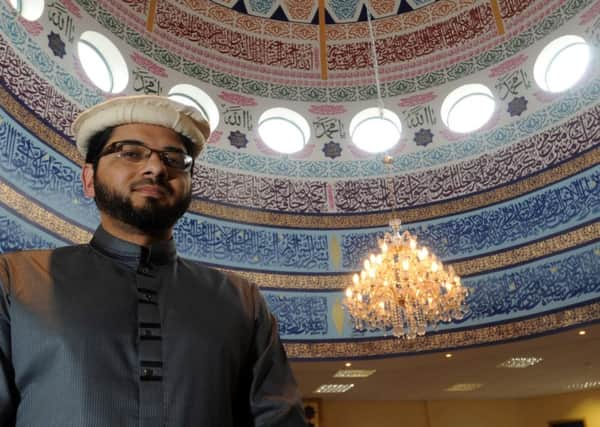Qari Asim: Apathy will win election if young people don't register to vote


It is the future of young people – from tuition fees to climate change, getting on the property ladder to working in the EU – which is on the ballot paper. Yet too many young people are still not on the electoral register.
Before the last election, 186,000 missed the register to vote deadline. To vote in this election, first time voters need to register by 11.59pm on Monday, May 22.
Advertisement
Hide AdAdvertisement
Hide AdThe voting apathy troubles me greatly, in particular when I see young people in the Middle East and Africa risking their lives to exercise their democratic right to vote.
Therefore, since the announcement of the snap election, I have been campaigning to get more and more young people to register to vote. Last week, faith leaders participated in a #MyFaithMyVote social media initiative to urge people of all faiths to get behind a voter registration drive.
When I talk to young people about exercising the hard-won democratic right, I often hear them say “my vote will not make any difference”; “the political parties are all as bad as each other”; “I don’t understand what I am voting for”; “the parties are more interested in getting into power than caring about young people” etc. Regrettably, young people do not realise this act of disengagement immediately becomes a self-fulfilling prophecy.
Millennials can’t be accused of shirking their civic duty. But why are so many young people disengaged from democratic processes? Is it apathy? A reduction in political activism? Lack of trust in the political system? Or is it something much deeper?
Advertisement
Hide AdAdvertisement
Hide AdYoung people and the black and minority ethnic (“BME”) voters are particularly sour about politics. In addition to young people, another group of people less likely to register and vote is ethnic minorities, leaving a considerable political participation gap.
We are seeing, for example, a lot of young people participating in Labour’s rallies – whether or not they will vote for Labour remains to be seen. The Scottish independence referendum showed that people are not necessarily apathetic, they just need something they feel is worth turning out to vote for.
The 2014 vote north of the border demonstrated that people respond to politics and/or policies when they say something emotional about the world they live in – their sense of belonging. The challenge is to keep such voters politically engaged when they might feel disillusioned. Political parties need to earn back the trust and interest of the disengaged voters.
In addition to young people, voters from black ethnic minorities need to be engaged. The engagement with millions of BME voters requires a nuanced and tailored strategy. The polls have shown that BME voters, to an extent, have similar political concerns as their white British peers – thriving economy, lower taxes, a strong NHS, controlled immigration, and law and order. In addition to these priorities, social and economic deprivation, disproportionate unemployment and poor housing is of huge concern for many young BME voters.
Advertisement
Hide AdAdvertisement
Hide AdAmongst the BME communities, Muslims are the least well-resourced and somewhat more isolated section of the community, and young Muslims are looking to vote for those parties that will promise to invest in their neighbourhoods, create job opportunities and bring prosperity to their lives, leading to better economic and social integration.
There are around three million Muslims in this country and nearly half of the population is under the age of 25. Muslims are likely to have the highest number of first-time voters. Parties should be fighting over those votes: first-time voters are less encumbered by the baggage of existing party allegiance. Their votes are ‘up for grabs’. Yet I’ve seen little in the manifestos to attract such voters.
Voting habits are formed early in a person’s first two elections. If future generations never adopt the voting habit, turnout will fall further, weakening the legitimacy of elected governments.
Millennials are accustomed to tailoring their world to their preferences. Politicians must learn to engage them with ideas that concern the millennial rather than vote for a bundle of election promises.
Advertisement
Hide AdAdvertisement
Hide AdTo young people, I say abstaining from voting on June 8 would potentially leave room for the least preferred option to win.
There is no doubt that the repercussions of this election will be felt for many years so let the result be down to choice – and not the by-product of apathy. Register now before it is to late.
Qari Asim is chief imam at Makkah Mosque in Leeds.